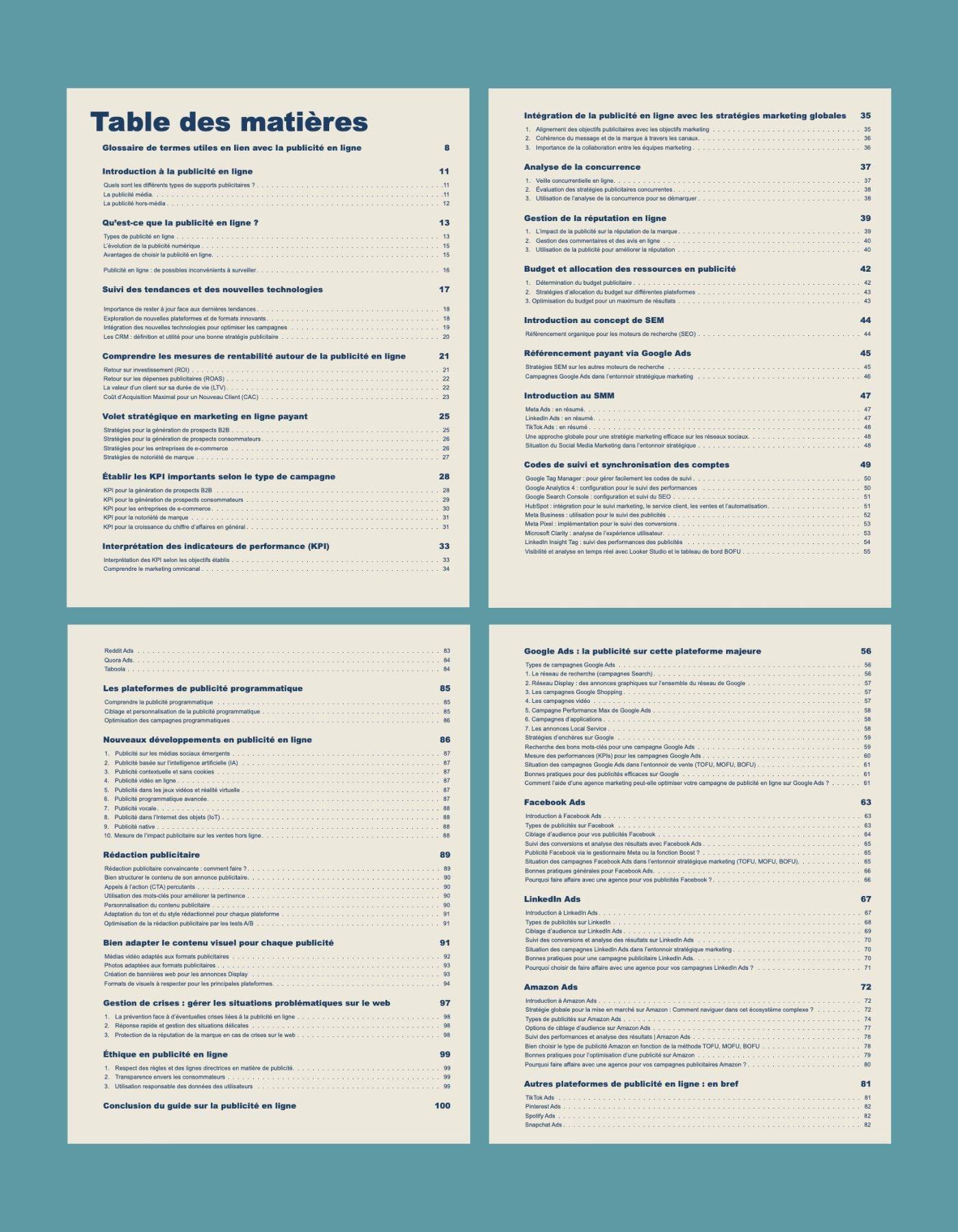Technical SEO includes a wide range of aspects that, when properly optimized, can significantly improve a website's positioning in search results. Contrary to some beliefs, technical SEO is not just reserved for IT experts. By understanding the basics and best practices , you will be able to use technical SEO to your advantage!
What is technical SEO?
In order to fully understand what it represents, let's first take an overview of false beliefs related to technical SEO . This exercise will at the same time make it possible to better define the theory behind this important aspect of global natural referencing .
- Many think that technical SEO is too complicated for anyone who is not a computer expert. In reality, although some aspects are indeed more specific, several elements can be managed with a minimum of technical knowledge. These include page loading speed, mobile adaptability ( responsive design ), or the installation of an SSL certificate for a secure site (HTTPS), for example.
- Another belief to clarify is that many people see technical SEO as a quick fix to improve a site's ranking in search results . In reality, organic SEO in general remains a long-term process which therefore requires patience and perseverance. Technical SEO is an important part of this process, but it must be done in correlation with other facets, such as quality content for example.
- We sometimes hear that technical SEO is a discreet practice that has no effect on other aspects of the site. However, this is false ! In fact, this aspect of SEO is closely linked to other aspects of SEO and user experience. The impact is therefore real. For example, in addition to improving its ranking, a site that loads quickly and is easy to navigate will be just as beneficial for the overall user experience (improved UX).
- Finally, some believe that technical SEO is a static strategy that does not need to evolve once it has been implemented. But the reality is quite different! As with all other aspects of SEO, it must evolve with changes in the search engine algorithm and new technologies. This is indeed how your approach can become more effective!
In short, technical SEO is neither a practice reserved only for experts, nor a quick shortcut to improve a site's ranking. Rather, it is an integral part of a good overall SEO strategy . It therefore requires continuous attention and constant evolution to remain fully effective.
Now, let's take a look at each of the main components of technical SEO, in order to better understand this aspect of SEO , and appreciate its importance in today's digital world.
Domain names and redirects
An important aspect of technical SEO concerns domain names and redirects. A good domain name should be easy for users to read, understand and remember, while providing a relevant overview of what the website offers. Redirects , on the other hand, are essential to correctly direct users and search engines to the appropriate content, especially in the event of a URL change or site restructuring.
Differentiate between the different types of redirects in technical SEO
Since redirects play a necessary role in website management, especially when it comes to ensuring a smooth user experience and maintaining high visibility in search engines, it is well worth seeking to understand how they work, why they are used, in addition to realizing their impact on SEO.
In this sense, here are the main types of redirections that it is possible to encounter:
- 301 - Permanent Redirection : This indicates that the page has been permanently moved to a new URL. In these cases, search engines then transfer the majority of the SEO value to the new address.
- 302 - Temporary Redirection : Used when content is moved temporarily. Search engines can therefore choose not to transfer the SEO value , considering that the original page will undoubtedly return.
- 307 - Temporary Redirection (HTTP/1.1) : Similar to 302, but more specifically related to the HTTP/1.1 version.
- Meta Refresh : This is a variation since in itself, it is not an HTTP redirection per se. This notion rather represents a pause of a few seconds before redirecting the user to a new page.
What are website redirects used for?
When it comes to optimizing the technical SEO of a website , it helps to understand that redirects can have different functions .
- Domain Change : If you are moving your site to a new domain, 301 redirects are essential to transfer SEO value.
- Content reorganization : They help maintain the user experience when redesigning or reorganizing the site.
- Deletion of pages : In the event that an obsolete page is deleted, a redirection can then guide the user to a relevant page in order to avoid the site being penalized in terms of natural referencing.
- Site security : A redirection can direct users of an HTTP site to HTTPS, and thus optimize browsing security.
- Website Migration : In such a scenario, without proper redirects, then the SEO ranking and traffic can be seriously affected.
- Content Merger : If two pages are merged, a redirection from the old to the new is crucial to avoid duplicate content.
- Maintenance ( or Temporary Downtime ): Using temporary redirects is a good way to inform users without harming rankings.
Understand the impact of redirects on search engines
Redirects have a direct effect on how search engines index and rank pages. For example, a well-implemented permanent (301) redirect will transfer the majority of SEO value to the new URL.
The time it takes for search engines to correct the ranking index following a redirected page can vary. Typically this can take anywhere from a few days to a few weeks. A great tip to know: using tools like Google Search Console can help speed up this process.
In short, redirects are an essential aspect of website management and SEO in general. Used wisely, they can improve user experience and preserve SEO value. Understanding the different types of redirects, and knowing when and how to use them, is therefore essential for a successful online strategy!
Site crawling by robots
How easy it is for robots to crawl a website is another crucial aspect of technical SEO . For a website to be properly indexed by search engines, they must be able to access all relevant pages. It is recommended to use a robots.txt file to guide search engine crawlers (like Googlebot for example), telling them which pages to crawl and which to ignore.
Security
Website security is another central element of technical SEO . We can even say that the use of the HTTPS protocol , ensuring that the data exchanged between the website and the user is secure, has become a standard.
As a result, please note that Google now favors sites using HTTPS over other search results.
Navigation
In order to constantly want to optimize the user experience , it is essential to worry about the technical aspects surrounding the navigation of your website. A well-structured site, with intuitive navigation , encourages visitors to stay longer and explore more pages. This approach therefore has the positive consequence of reducing the bounce rate, causing a potential improvement in SEO ranking.
Website speed
Among the different components of technical SEO, the loading speed of a website is among the most important . Indeed, it has a direct impact on the user experience and is therefore considered an important ranking factor for Google . Optimizing loading speed can be achieved in several ways, such as minimizing CSS and JavaScript code, compressing images, and using a content delivery network (CDN).
Mobile-friendliness
With the increase in internet usage on mobile devices, it is essential that your site is optimized for both smartphones , as well as tablets. Opting for a responsive design that adapts well to the size of the user's screen is therefore a good practice to adopt for effective natural referencing .
Sitemaps
Having the role of making it easier for search engines to explore your site, the use of sitemaps is another interesting strategy to consider when it comes to optimizing technical SEO. By providing a representative structure of your website , the creation of an XML sitemap , submitted to Google Search Console for example, ensures that all important pages will be taken into account by the search engine's algorithm.
Website structure
The overall structure of a website should be logical and organized in a way that makes navigation easy for users and search engines. Concretely, the URLs must then be very descriptive. It is also recommended to use header tags which will aim to define the hierarchy of the content of the different web pages.
Schema markup and structured data
Using schema tags and structured data can greatly improve a site's visibility in the SERPs. These elements provide search engines with additional information about the content of the page, allowing rich snippets to be displayed in search results. It should be noted that Google offers, in this sense, a structured data testing tool to verify the correct implementation of these elements.
Handling 404 errors
404 errors occur when a page cannot be found. When they occur, these error codes can harm the user experience , and thus your SEO , if not handled correctly. It is therefore important to regularly check your site to ensure that it does not contain 404 errors. In the event of this type of error, it would be important to correct it quickly, either by restoring the missing page or by redirecting the 'URL to another relevant page.
Conclusion
In short, good technical SEO requires particular attention to each of these aspects. When properly optimized and managed, these elements help improve your website 's ranking in search results, increasing its visibility and generating more traffic .
In addition to improving the probability that your site is well positioned in search results, good technical SEO optimization has the advantage of demonstrating positive impacts on the user experience (UX) in general.
Discover The Ultimate Guide to SEO 2023
Business manager or decision-maker, maximize your online visibility with The Ultimate Guide to SEO 2023 . Written by experts, this guide offers you key strategies to shine on search engines. Don't miss this opportunity to invest in your digital future. Get the guide now.
















